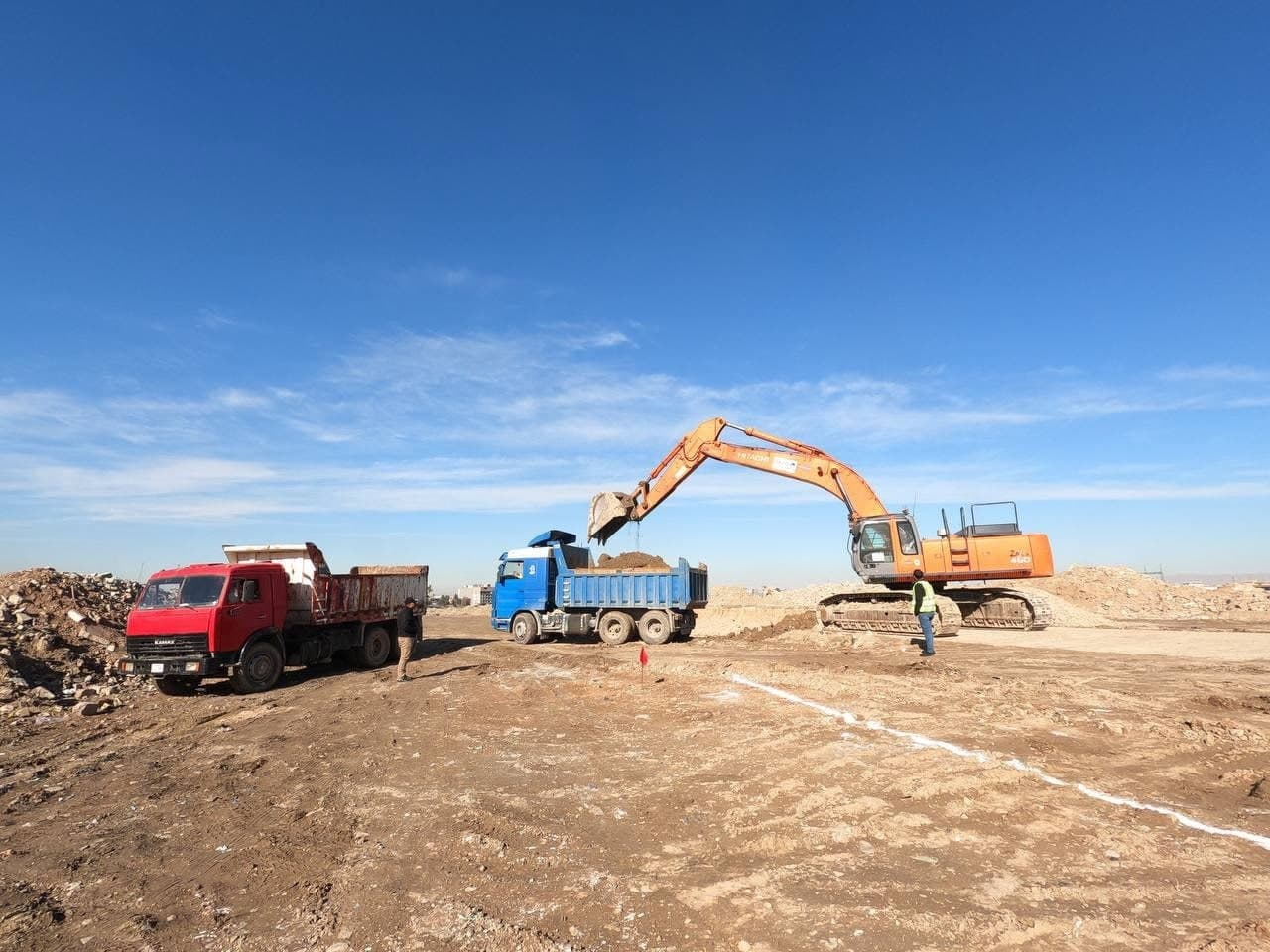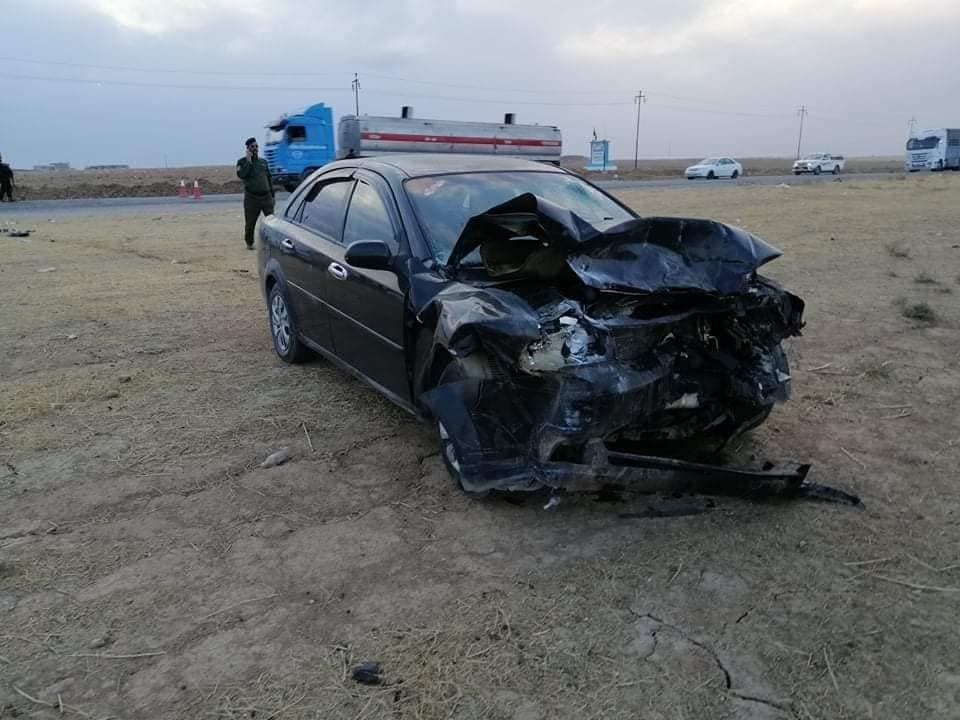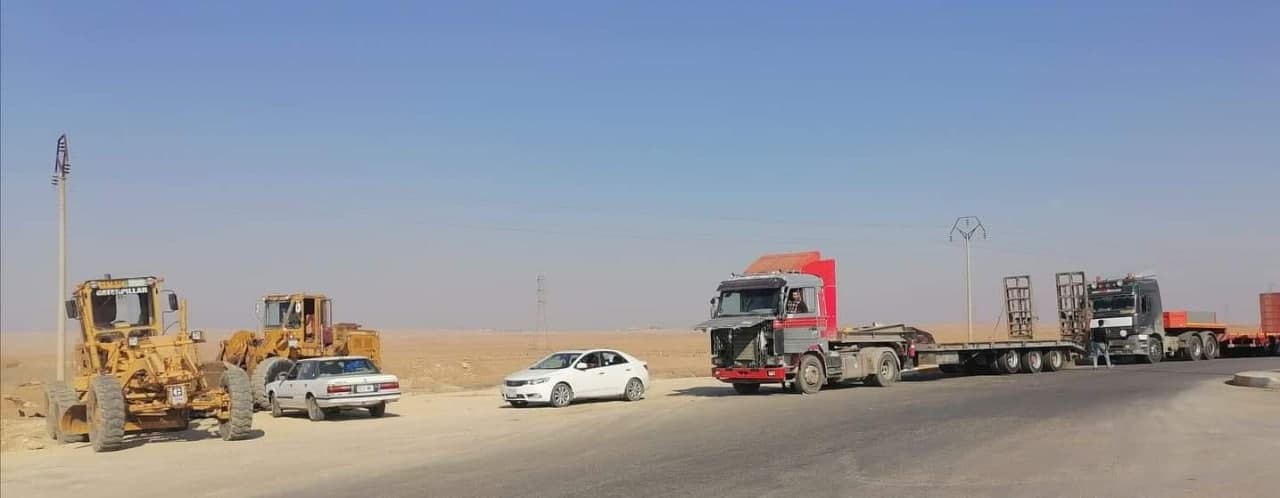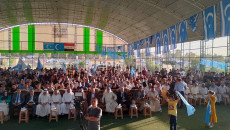“No matter how careful you try to be and abide by the rules, you will not escape from accidents on this road which is used by thousands of cars daily. Part of it is due to big vehicles making small cars suffer more,” says Adnan Muhammad, a resident of Tal Afar.
Mohammed, 35, called on the relevant authorities to "preserve the lives of citizens, by rehabilitating the road and striving to make it in two directions, from Kasik to Tal Afar at least."
Meanwhile, the director of Tal Afar General Hospital revealed that dozens of victims were received as a result of recent traffic accidents on this road.
Dr. Jaafar Mohsen told KirkukNow that "the hospital constantly receives deaths and injuries as result of traffic accidents that occur on the Kasak-Tal Afar Road because it is a single lane, and in recent weeks we have received about 15 dead people as a result of these accidents, along with dozens of wounded."
The project will contribute to ending the suffering of our people in Tal Afar, Shingal (Sinjar) and Al-Baaj
The last report of the Central Statistics Organization revealed that 232 traffic accidents were recorded in Nineveh province, including 35 accidents in Tal Afar. 69 of the car crashes were collisions, 21 of it overturned, and 142 of it run over. 79 accidents were fatal, 21 accidents left deaths and injuries, and 119 accidents that left injuries only, while only 13 of it ended safely, causing no injuries. 23 accidents were officially documents due to poor road conditions.
Following the ousting of Saddam Hussein regime in 2003, Sectarian violence and later the war against the Islamic State in Iraq and Levant ISIL, left Tala Afar and Ninewa province at ruins.
The district of Tal Afar, west of Mosul has been for nearly three years under the control of ISIL, which killed dozens of its people while the fate of 1,300 of them is still unknown after that it has kidnapped them from the first hours of its control, including Children and women.
Tal Afar, which has a population of about 450,000 people, is distributed over the city center and three sub-districts: Ayadhiya, Baaj and Rabia. Majority of its residents are of Turkmen ethnicity, while some Arabs and Kurds reside neighbor villages.
Daesh committed atrocities in June 2014 when they controlled Tal Afar. 1300 people were abducted: 700 men, 470 women and 130 children, among them 400-500 in ISIL controlled prisons in Syria, a statement by Turkmen civil society NGOs said last year.

Nineveh, January 2022: Part of the work on Tal Afar - Mosul Road. Jaafar Al-Talafari
Humble steps and solutions
Local authorities pledge they have coordinated with Nineveh administration to turn the road into two lanes.
For his part, the mayor of Tal Afar Qassem Muhammad Sharif said, "The governor of Nineveh instructed the Governorate's Roads and Bridges Directorate to implement the second master project for the Tal Afar-Al-Kasak Road, funded by regions' development allocations for 2021, after recording victims on an almost daily basis."
Sharif explained to "the project is underway, and we had visits to follow-up on the project, which will contribute to ending the suffering of our people in Tal Afar, Sinjar and Al-Baaj, and we were directed to the need to complete the work as soon as possible."
This was confirmed by the Director of Tal Afar Municipality, Engineer Nazim Saber, who said the project will be implemented in two phases, the first with a length of 12 km from Al-Kasak to the castle gate, and the second with a length of 8 km from the castle gate to the Tal Afar gate, at a total cost estimated at 14 billion Iraqi Dinars IQD ($9.5 Millions), sand layers’ including cutting and burial works, with the creation of box and tube arches.

Nineveh, December 2021: a traffic accident on Tal Afar-Mosul Street. Jaafar Al-Talafari
Turkmens are considered the third largest ethnic group in Iraq after Arabs and Kurds, residing almost exclusively in the northern towns and villages stretching from Tal Afar through Mosul, Erbil, Altun Kupri, Kirkuk, Tuz Khurmatu, Kifri and Khanaqin. They are half Sunnis and half Shiite.
"The project will contribute to alleviating the severity of accidents and reducing the number of victims, in addition to the ornamenting the road, as it reflects an image that fits the history of Tal Afar, its status, civilization and the sacrifices of its people," director of municipality added.
"This road is of great importance as it connects the Mosul, center of the province, to three important districts, which are Tal Afar, Sinjar and Al-Baaj, and most of the residents of these areas work in agriculture, and attention to this road will contribute to alleviating the burden on the shoulders of farmers in particular, and on the citizens who commute to state departments or its hospitals and medical clinics for treatment in general,” according to Falah Hassan, a 42-year-old resident of Tal Afar.
Speaking to (KirkukNow), Hassan believes that "the path taken by more than half a million people continues to claim the lives of citizens, and we hope that the concerned authorities will find drastic and quick solutions to address the matter."






